
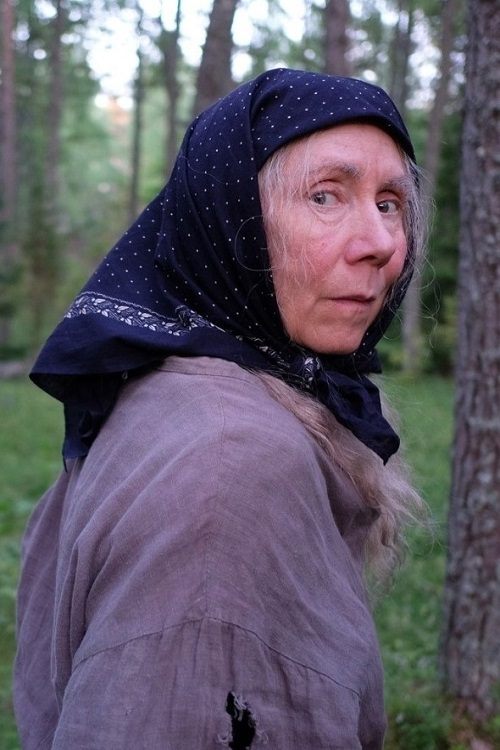
The Old Woman lives in a deep Estonian forest, alone and isolated. Her parents came here to settle to raise and educate their children in the right way. They all died long ago. The Old Woman leads her farm, until one day her world almost collapses due to the intrusion of a lost stranger.

A historical spy-thriller set in 1939 about an Estonian intelligence agent tasked with uncovering the Soviet double agent in their ranks.
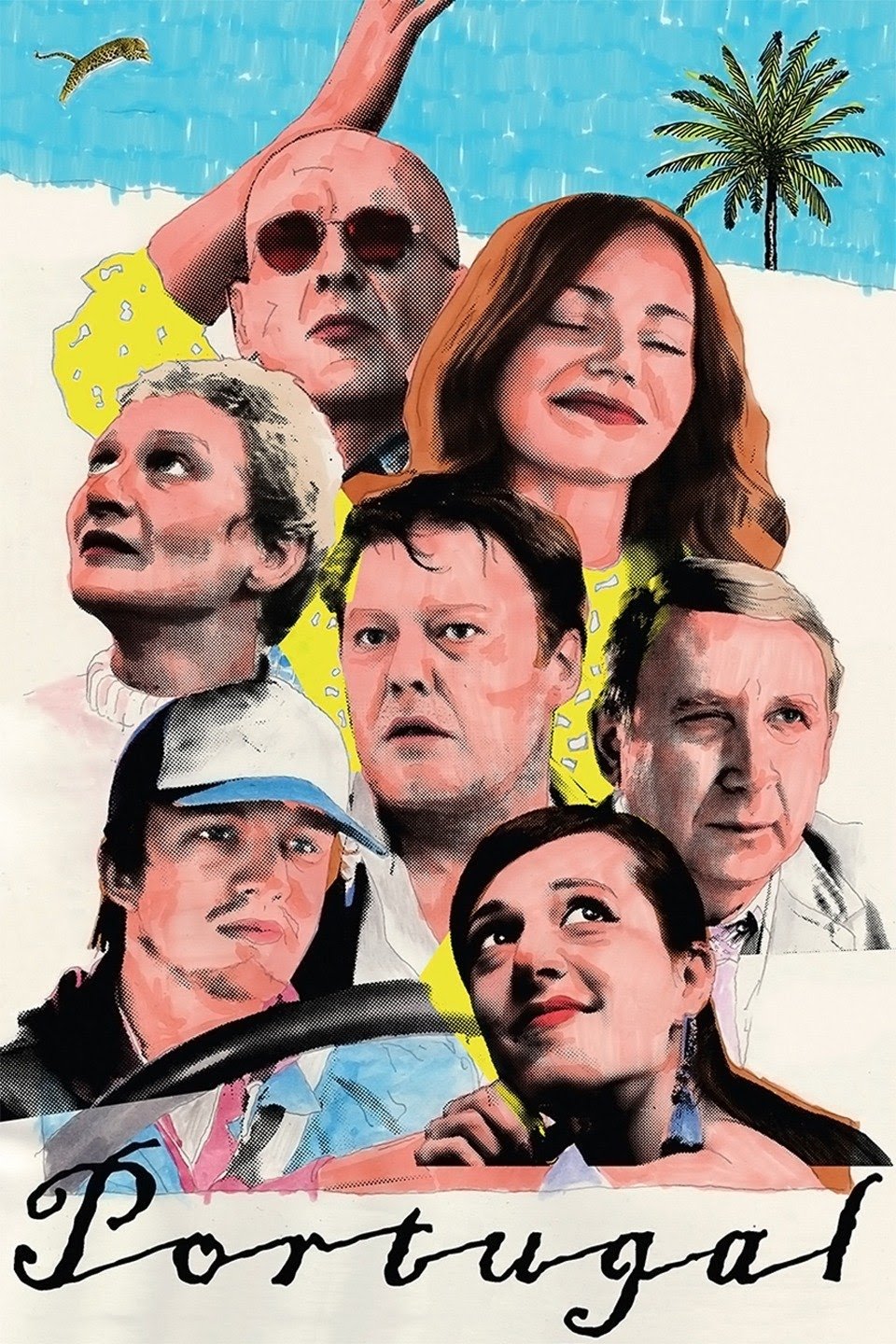
Karina and Martin are in a pleasent relation where everyday life flows in an effortlessly accustomed way and no small misbehaviours can shake it’s rush. Life is good. Perhaps it’s this perfection and frequent patterns that make them finally pose a question – is everything to be expected in life? This is a story about following the yearning of your soul. Longing for something other than the present and having the courage to be deliberately lost.
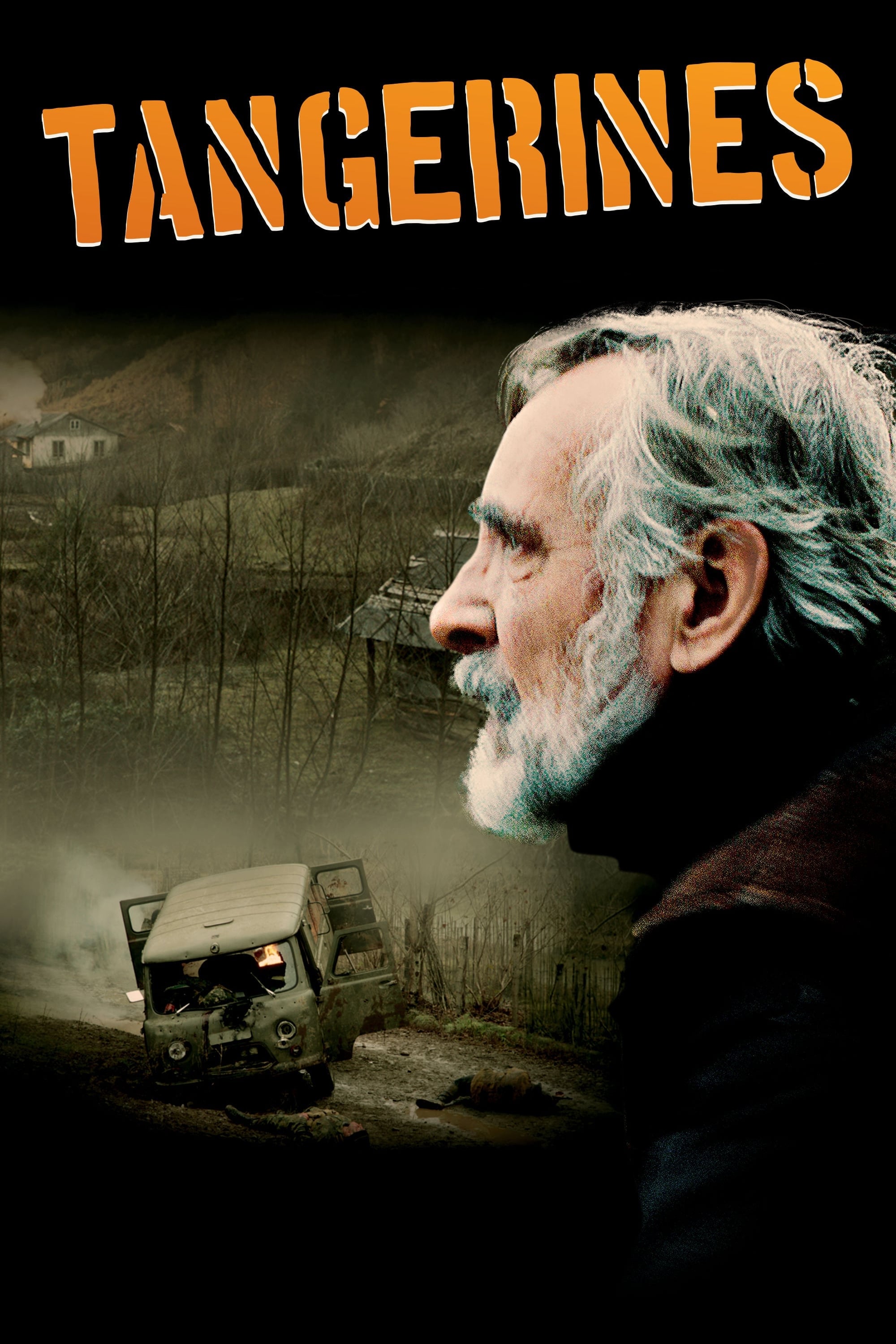
War in Abkhazia, 1992. An Estonian man Ivo has stayed behind to harvest his crops of tangerines. In a bloody conflict at his door, a wounded man is left behind, and Ivo is forced to take him in.
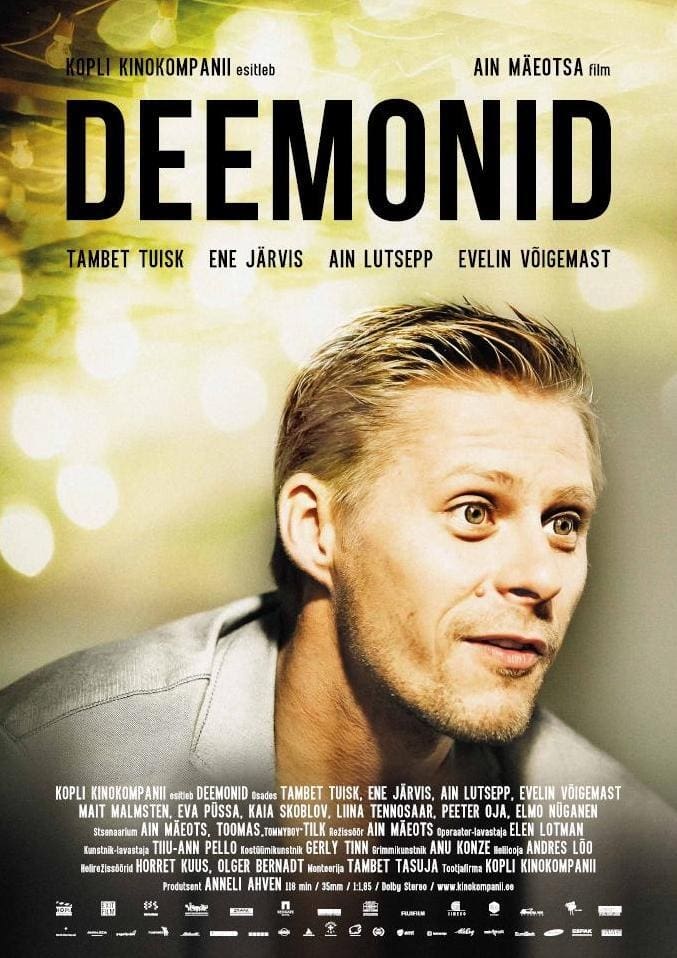
When Joko, Ants and Reeda, all in their own good reasons, first enter a casino, they can't possibly be aware of the very existence of the demons inside them. Soon enough, they will know. But then it is already too late and their lives are suddenly caught in a fatal vortex.
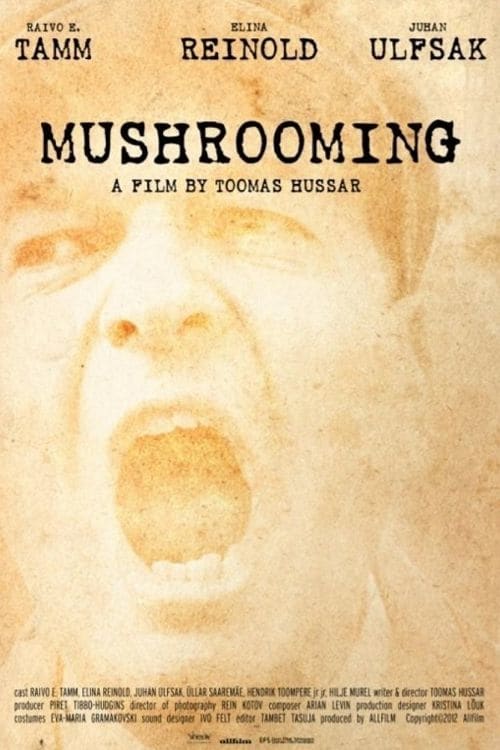
Politician Aadu Kägu goes to the mushroom forest with his wife Viivi to rest his nerves from the reputation campaign. They are joined by a voter, penniless rock star Zäk. In order to avoid common mushroom forests, they drive to some countryside at random. Soon the trio discovers that they are lost, at the same time a media scandal breaks out - the investigative press suspects that Kägu has misused state money. The fight for honor, life and death begins, both in the forest and in the city.
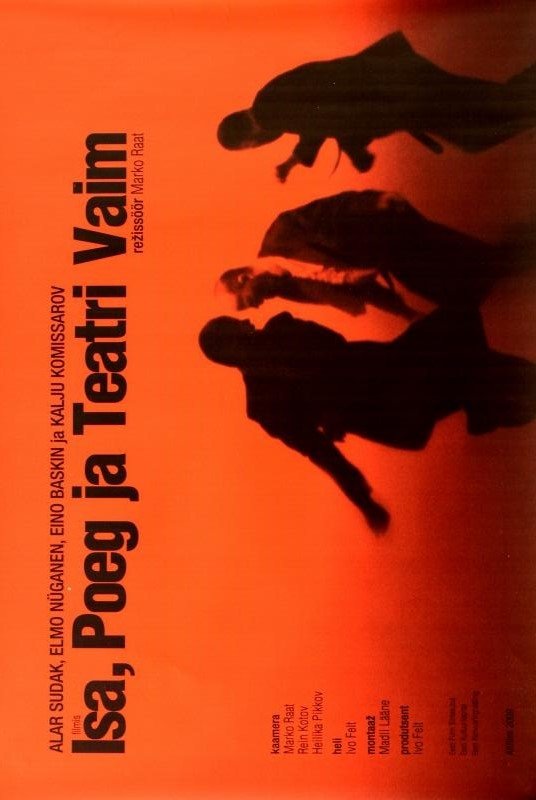
Alar Sudak alias Elaan is the don Quijote of Estonian theatre - predestined to eternal loneliness. Sudak's dream to become an officially acknowledged actor has never come true. He has failed the entrace exams to the Drama School of Estonian Academy of Music and Theatre and other schools. The documentary tells a story related to the Old Testament - including good-hearted Satan, water wars, unrequited love of theatre, jurisprudence, community's revenge that lasts over several generations and regimes. Elaan's life and destiny includes so much drama that he is unable to let go of it - as his actor's spirit cannot live without it.
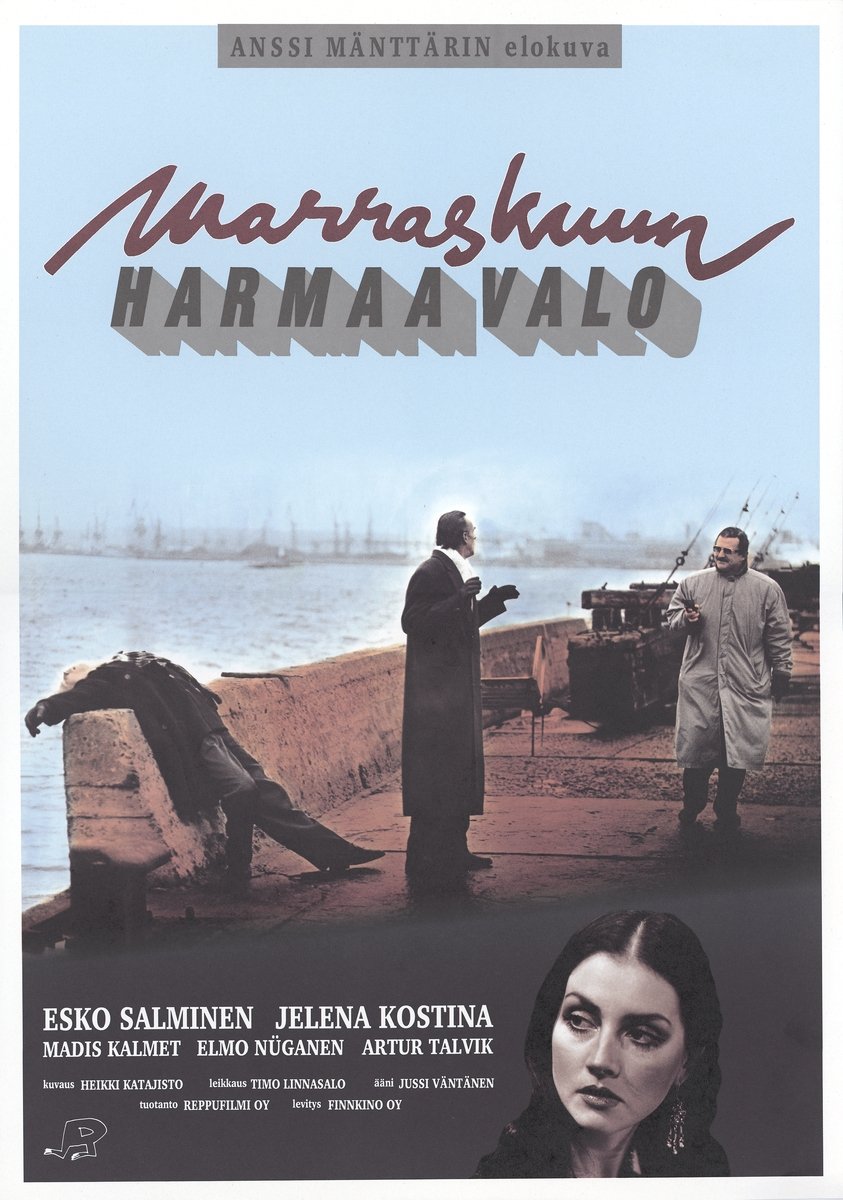
Kari Syysmäki, a Finnish Businessman is on a vacation with his wife in Tallinn. When his wife is away a young man enters their hotel room with a gun. He tells to the businessman that he has just tried to rob a bank, but accidentally shot one of the clerks. Now he's hiding from the cops. But when the bank robber forgets his gun on the table, Syysmäki grabs it and shoots him in the back. After that Syysmäki refuses to travel back to Finland with his wife. He stays in Tallinn and soon he's about to face both the cops and the mob of Estonia.
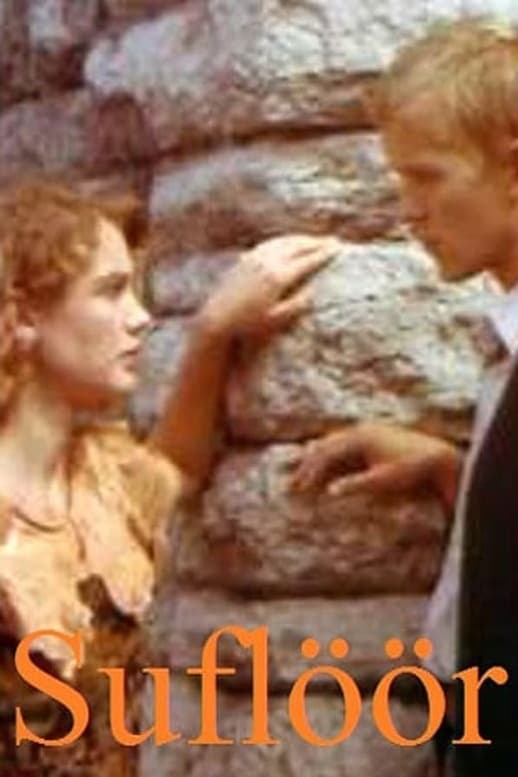
The last film directed by Kaljo Kiisk has been dedicated to theatre and the people in theatre. You are entering the hectic world of musicians, zanies and jesters - and don't expect to hear a symphony but a single delicate sound of a flute.
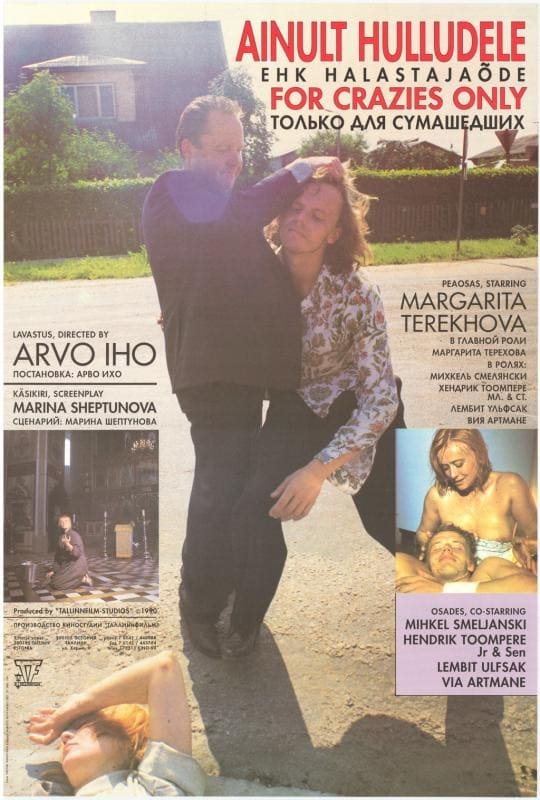
A young man is taken to a small town hospital after a suicide attempt. Rita is a beautiful married Russian nurse taking care of him.
Elmo Nüganen (born February 15, 1962 in Jõhvi) is an Estonian theatre director, film director, and actor. He has been the artistic director of the Tallinn City Theatre since 1992. He was a graduate of the Estonian Academy of Music and Theatre in 1988 and then a professor at the academy in 1998–2002 and 2008–2012. He directed the war films Names in Marble from 2002 and 1944 from 2015. Names in Marble was seen by more than 168,000 people in Estonia and was selected for the 2003 Taormina Film Fest, while 1944 had the highest opening-week audience numbers in Estonian film history and became the country's submission for the Academy Awards. Nüganen has received multiple awards for his work in theatre, including the Estonian Annual Theatre Award for Best Director in 1992, 1995, 2000, 2007, and 2010, and the Estonian National Cultural Award in 1996, 1999, and 2009.
By browsing this website, you accept our cookies policy.